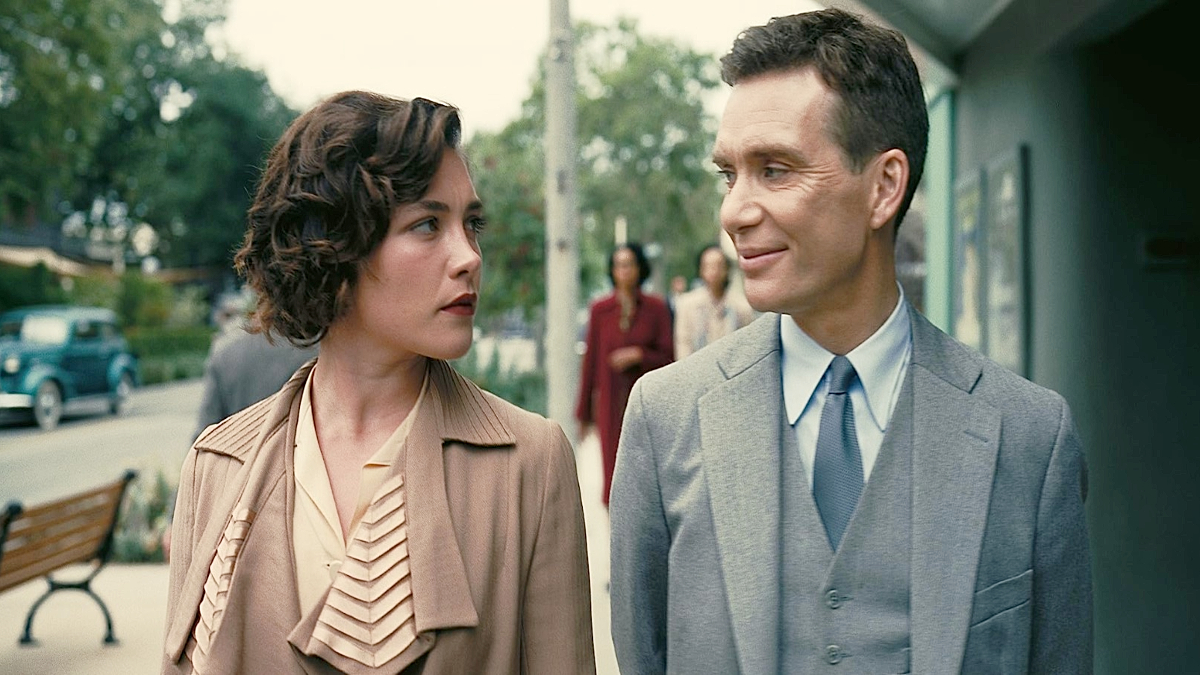This post contains spoilers for the film Oppenheimer and contains sensitive content. Florence Pugh, a talented actress who has made a name for herself in Hollywood at just 27 years old, has starred in critically acclaimed movies such as Midsommar, Lady Macbeth, and Little Women. Her most recent role in Christopher Nolan’s biographical thriller, Oppenheimer, showcases her incredible talent. Pugh’s portrayal of Jean Tatlock, a WWII figure, is both captivating and heart-wrenching.
The real Jean Tatlock was born in 1914 to a renowned English professor at the University of Michigan. She defied societal norms by attending Stanford Medical, where she became one of the few female students. Eventually, she pursued a career in psychiatry and also worked as a reporter and writer for the Communist Party’s publication, Western Worker. Her involvement with the Communist Party attracted the attention of the FBI.
Jean Tatlock and J. Robert Oppenheimer crossed paths through their mutual connection, Mary Ellen Washburn, who was also a member of the Communist Party. Tatlock and Oppenheimer began their relationship in 1936 when she was a graduate student at Stanford and Oppenheimer was a physics professor at the University of California, Berkeley. Despite a ten-year age difference, their love blossomed, and Oppenheimer even proposed to Tatlock on two occasions, though she declined. Oppenheimer eventually married biologist Kitty Harrison in 1940, but it is speculated that his romance with Tatlock continued.
In a letter, Oppenheimer described their relationship as being engaged twice and seeing each other rarely between 1939 and Tatlock’s death in 1944. Oppenheimer paid tribute to Tatlock by naming the first nuclear weapon test “Trinity” after a poem by John Donne she had introduced him to and that he cherished.
There are indications that Oppenheimer may have had an extramarital affair with Tatlock while working on the Manhattan Project. Records suggest that they spent time together on various occasions, including the New Year in 1941 and a meeting at a hotel in San Francisco. Their relationship continued despite Oppenheimer’s refusal to meet with Tatlock before departing for the Manhattan Project. Although their encounters were limited, evidence supports their extramarital affair.
Tragically, Jean Tatlock suffered from clinical depression and died by suicide on January 4, 1944. She was found submerged in a bathtub at her apartment in Montgomery Street. Her suicide note expressed her disgust with life and her belief that she would have been a burden. Tatlock’s death deeply affected Oppenheimer, who wept upon hearing the news. Her autopsy revealed asphyxiation by drowning, with traces of chloral hydrate in her system. Although suspicions arose about foul play due to her Communist affiliations, no solid evidence supported these claims. She was cremated by her father, John Tatlock.
Florence Pugh’s portrayal of Jean Tatlock in Oppenheimer allows us to glimpse the tragic tale of a remarkable woman hidden beneath her intelligence and allure.
Denial of responsibility! TechCodex is an automatic aggregator of the all world’s media. In each content, the hyperlink to the primary source is specified. All trademarks belong to their rightful owners, and all materials to their authors. For any complaint, please reach us at – [email protected]. We will take necessary action within 24 hours.
Khushi Patel is a science fiction author who lives in Austin, Texas. She has published three novels, and her work has been praised for its originality and imagination. Khushi is a graduate of Rice University, and she has worked as a software engineer. She is a member of the Science Fiction Writers of America, and her books have been nominated for several awards.


